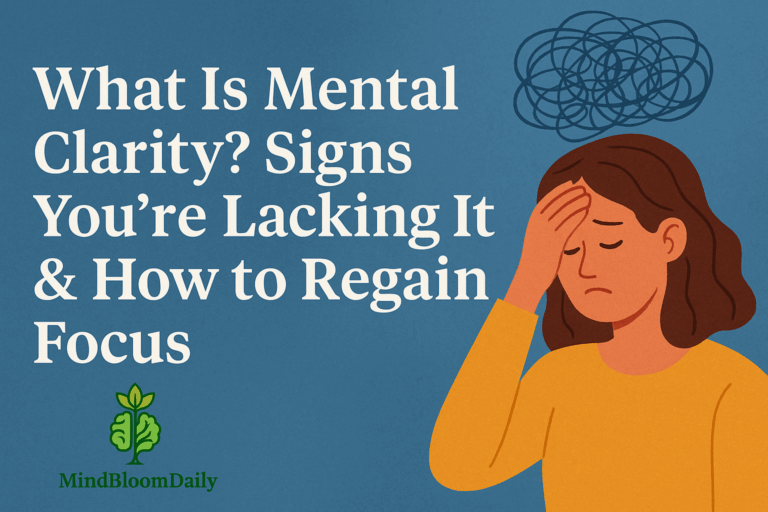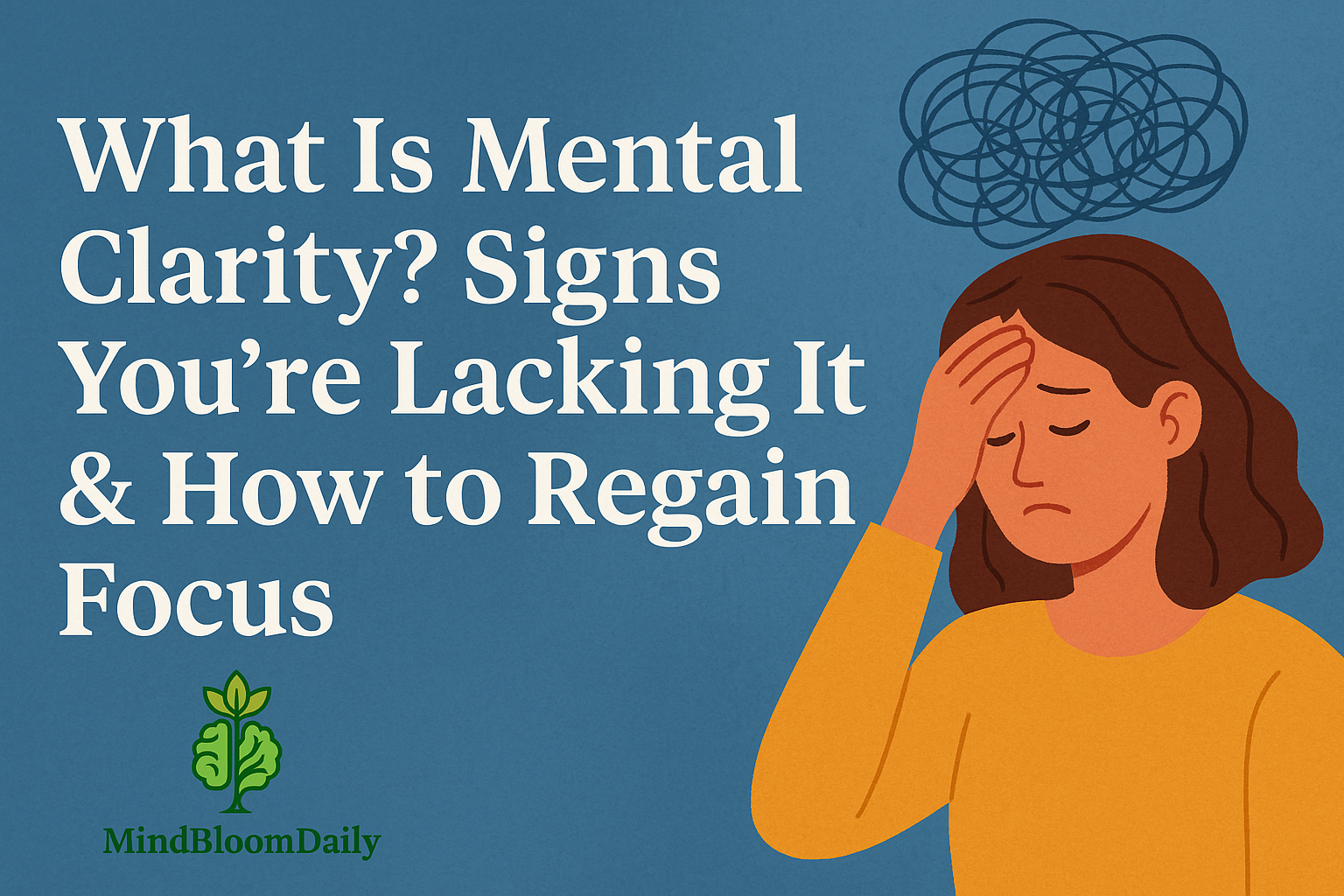
What Is Mental Clarity? Signs You’re Lacking It & How to Regain Focus

What Is Mental Clarity? Signs You’re Lacking It & How to Regain Focus
Why Mental Clarity Matters Now More Than Ever
In an age of constant notifications, multitasking, and digital noise, mental clarity has become more rare — and more valuable — than ever before. We wake up to phone alerts, juggle dozens of tasks throughout the day, and often end it all with an overloaded mind that can’t shut off. Sound familiar? That foggy, unfocused feeling is more than just tiredness. It’s a lack of mental clarity — and it’s affecting your ability to think, work, and feel at your best. But the good news? With the right daily habits and a bit of self-awareness, you can learn to clear the mental clutter and regain laser-sharp focus, greater calm, and emotional balance. In this article, we’ll break down:
- What mental clarity really means
- How to spot the signs that you’re lacking it
- 10 science-backed tips to help you regain focus and feel mentally refreshed
Let’s begin.
What Is Mental Clarity?
Mental clarity is a state of clear, focused, and organized thinking. It’s when your mind feels calm, your thoughts are easy to follow, and you can confidently make decisions without second-guessing yourself. When you’re mentally clear:
- You can focus deeply on tasks
- You feel less anxious or reactive
- You solve problems with more creativity
- You feel in control of your emotions and day
It’s the opposite of mental fog — that hazy feeling where everything feels overwhelming, and your brain just won’t “click.”
Signs You’re Lacking Mental Clarity
We all lose clarity sometimes — but if these signs are frequent, your brain may be calling for a reset:
- 🧠 You Feel Foggy or Drained You may find it hard to concentrate or feel like your thoughts are moving in slow motion. It’s frustrating and exhausting.
- 🔄 Easily Distracted You start a task… then check Instagram… then reply to an email… then forget what you were doing. This mental ping-pong reduces productivity and increases stress.
- 💭 Overthinking Becomes the Default You dwell on past conversations or worry excessively about future outcomes. It becomes harder to stay present.
- ❓ Forgetfulness Creeps In Where did you put your keys? What was that person’s name? You’re forgetting things you used to easily remember.
- 🕓 Low Energy and Lack of Motivation Mental clutter drains your willpower. You feel unmotivated, sluggish, and even small tasks seem huge.
Common Causes of Mental Fog
- Sleep deprivation
- Chronic stress or anxiety
- Poor nutrition or dehydration
- Too much screen time
- Multitasking and information overload
- Lack of physical movement
Your brain is like a muscle — when overworked or undernourished, it loses performance.
10 Daily Habits to Regain Mental Clarity and Focus
- Prioritize Quality Sleep Lack of sleep is one of the biggest causes of mental fog. Aim for 7–9 hours each night and stick to a consistent bedtime.
- Start Your Day With Stillness Before you check your phone, spend 5 minutes in silence, deep breathing, or journaling. It sets the tone for a clear-minded day.
- Declutter Your Space Your environment mirrors your mind. A clean desk or room can instantly reduce cognitive load and help you focus.
- Practice Mindfulness Just 5–10 minutes of meditation or mindful breathing can calm the nervous system and improve concentration throughout the day.
- Limit Multitasking Multitasking splits your attention. Instead, batch similar tasks together and use timers like the Pomodoro Technique to stay on track.
- Drink More Water Even 1–2% dehydration can impair memory and attention. Keep a bottle nearby and sip often.
- Nourish Your Brain Include foods rich in omega-3s (like walnuts and salmon), leafy greens, berries, and whole grains. They fuel better thinking and mood.
- Take Movement Breaks Physical activity increases blood flow to the brain. Try stretching, walking, or light exercise during breaks.
- Filter Your Digital Input Turn off unnecessary notifications. Unfollow accounts that drain you. Curate your digital life like you would your home.
- Reflect With a Journal Write out your thoughts and worries at the end of each day. It helps process emotions, prioritize your goals, and quiet mental noise.
When to Seek Support
Sometimes, no amount of self-care fixes the fog. If mental clarity remains elusive, consider speaking with a therapist, counselor, or doctor. Conditions like depression, anxiety, ADHD, and hormonal imbalances can all affect focus and mental performance. There’s no shame in asking for help — in fact, it’s a sign of strength.
Final Thoughts
Mental clarity is not a luxury — it’s a daily practice. By taking small, consistent steps to support your mental well-being, you can regain focus, increase energy, and approach each day with more peace and purpose. Start small. Start today. Your mind will thank you.
Related Posts


